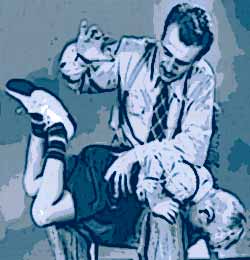Punitive Damages
Punitive damages are also known as exemplary
and are awarded to plaintiff over and above the compensatory damages
that have been awarded. Where compensatory
damages cover the actual monetary losses of the plaintiff,
punitive damages are meant to punish the defendant's behavior
and discourage any future similar behavior.
Punitive damages are meant to punish and
discourage malicious, wanton or willful conduct or conduct that
is in reckless disregard of the plaintiff's rights.
This misconduct is thought to be so outrageous and egregious
that it would be intolerable to any reasonable and prudent person.
The plaintiff has the burden of proving that punitive damages
should be awarded and in what amount. Punitive damages also serve
to compensate for the intangibles not covered by compensatory
damages or to cover the cost of the personal injury lawyer, who
will be paid 30 - 40 percent of the settlement. So, punitive damages
can serve as an inexact way to assure the plaintiff gets paid
what is truly owed.
Compensatory damages is the actual concrete monetary loss suffered
by someone who was injured by negligence or willfulness of another
or the damage to the person's property. Punitive damages, however,
have no standard amount from which a basis can be made. Some states
limit the amount of punitive damages that can be awarded in certain
personal injury cases, so its important to know the laws in your
particular state.
Tort reform has been proposed
in many states in order to put limits on punitive damages that
may be awarded. It is thought by many in the business community
and individuals as well that some of the high-profile punitive
damages that have been awarded are more on part with "winning
the lottery" than winning a personal injury case. This type
of lawsuit abuse they say cannot
be tolerated. As special type of tort reform that has been proposed
is split-recovery punitive damages.
In 2002 the state of Ohio issued a ruling on split-recovery punitive
damages, in which the state gets part of the damage award that
has been ordered by the courts for the plaintiff. The reasoning
is that if the intent of punitive damages is to punish the perpetrator
and discourage others from future misconduct for the good of society,
why should one plaintiff be rewarded with a windfall of millions
of dollars? Ohio's Supreme Court reasoned that the punitive damages
should be split between the plaintiff and society.
Other split-recovery punitive damage states include: Alaska,
California, Georgia, Illinois, Indiana, Iowa, Missouri, Oregon,
and Utah. These states differ, though, on which types of cases
the split-recovery punitive damages laws apply. One of the problems
with the split-recovery punitive damages is that many times personal
injury cases are settled outside of court and sometimes they are
settled in light of the state getting the lion's portion of the
settlement.
High-Profile Awards for Punitive Damages
In the O. J. Simpson Case, Mr. Simpson was found not guilty in
the criminal courts, but in the civil courts he was found guilty
by a preponderance of the evidence in the wrongful death of Nicole
Brown Simpson and Ronald L. Goldman. The Goldmans and Browns were
awarded $8.5 million in compensatory damages and $25 million in
punitive damages.
In the Betty Bullock v. Philip Morris tobacco case, a Los Angeles
jury awarded Bullock $850,000 in compensatory damages. The same
jury awarded Bullock, who was dying of cancer at the time, to
$28 billion, the largest award ever to an individual.
In Hayes v. Courtney, the jury showed outrage toward Robert R.
Courtney, a pharmacist who diluted cancer patients' medication
in order to boost his own profits. The Kansas City juror awarded
the plaintiff $225 million in compensatory damages and $2 billion
in punitive damages. The jurors said they knew that Courtney would
never pay the $2 billion in damages but they wished to make a
statement about his outrageous and egregious behavior.
Sometimes jurors do just that - they award punitive damages to
make a statement. Many times punitive damages such as these are
reduced upon appeal or else they are settled before or during
the appeal process. Other times punitive damages take hold and
stick through the appeal process and this will differ from state
to state and district to district.
|


